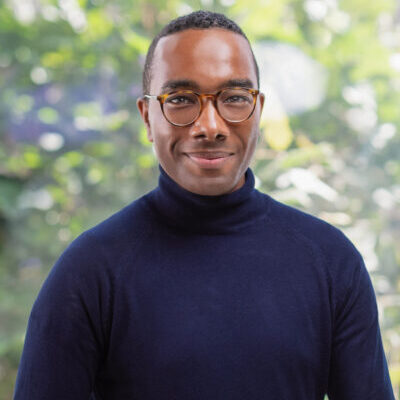10 Years of CEO Summit: Convening leaders on values, trust, and decision-making
This March, Rock Health celebrated the 10th anniversary of the Digital Health CEO Summit, where we convened nearly 100 digital health CEOs in San Francisco—and in person for the first time since 2019.
This group of leaders spanned identities, company growth stages, geographies, and business models. Two-thirds were first-time attendees of the Digital Health CEO Summit. Over half of the group identified as women+ leaders and more than 40% identified as people of color. Our attendees spanned the capital spectrum, including pre-seed ventures, ventures that have been acquired, etc. We also had representation from 16 states. Emerging from the past two transformative years, it was invigorating to share space with this remarkable cohort of digital health leaders.
Conversations throughout the day focused on attendee-requested topics including early-stage funding strategies, navigating partnerships, hiring and retaining teams, planning for exits, and achieving successful patient engagement. The energy in the room was palpable, and in reflecting upon the day we wanted to share a few key insights from the discussions with the broader digital health community:
1. Use values as a framework
While many organizations assert aspirational values, in reality these values are difficult to integrate into day-to-day work. When developed, instilled, and implemented effectively, CEOs shared that values can guide the work through every stage of growth. In early stages, values resonate outside of the walls of an organization and attract like-minded people. These guiding principles contribute to retaining and strengthening teams when tactically incorporated into processes such as onboarding, feedback, and performance reviews.
Founders shared a variety of additional ways in which values orient decision-making. When considering partnerships, the size of an organization should not be the basis of collaboration. Instead, incentives (e.g. shared end-users, common datasets, long-term goals) should be aligned. Staying loyal to values provides a framework for navigating investment decisions as well, even if that means saying “no” to an opportunity. This could include not pursuing a growth opportunity because it does not best serve your end-users. Guiding principles can allow CEOs to measure alignment on exit strategy decisions and to effectively communicate their strategic processes.
2. Invest in building trust
Trust is the foundation for successful relationships and teams, and throughout discussions at the CEO Summit, leaders structured their thoughts around building trust in two ways: (1) building trust with end-users and (2) building trust within and across teams.
Leaders noted that when building trust with end-users, it is essential to recognize their perspectives, journeys, and lived experiences. CEOs highlighted that products and services should be as easy and simple for end-users as possible, and should fit into their day-to-day activities. This is a significant component of end-user buy-in and retention. Tactically, leaders noted that one specific method to build trust is by working directly with communities outside of the walls of the healthcare system—this creates an invitation to build a foundation of trust.
To build trust within and across teams, leaders should acknowledge both hits and misses. While difficult, lean into the discomfort of knowing that things will go wrong at some point—as a leader, you can accept this reality and allow it to be an opportunity for collective learning and growth. CEOs echoed the importance of being comfortable with knowing what you don’t know; being clear about this builds trust and fosters transparency within a team. Overall, founders shared that there is an important distinction between selling yourself and being transparent. Transparency affords the opportunity to incorporate vulnerability and unknowns to strengthen teams over time.

3. Look (and act) beyond the fog
A number of CEOs recognized that their day-to-day work significantly changed in the past two years, largely due to the pandemic. Previous plans for launching products, services, and solutions had to be altered, and technology access issues for end-users introduced additional complexity. Founders shared that the importance of being empathetic to the experience of their users has been a huge learning. All of our lives have been impacted in profound ways that we are still grappling with today. Outside of the pandemic, there are perpetual ambiguities and uncertainties that leaders face in their daily work.
While these uncertainties bring challenges, CEOs shared that leaders should prioritize developing the confidence to make decisions in the midst of ambiguity through a reliable values framework and by trusting the strength of the team you’ve built to weather the storm alongside you. You will never have the perfect amount of data, and delaying a decision may end up causing more harm than a quick decision. CEOs agreed that while making these kinds of decisions can be nerve-wracking (and may expose vulnerabilities to potential investors), they can absolutely be the correct course of action as you look toward the future.

We would like to thank all of our attendees for sharing their wisdom and experience—you are what makes this event so exceptional. We would also like to extend a special thank you to our terrific sponsors: Fenwick, Morgan Stanley, and Russell Reynolds Associates; and our co-host, Venture Lab at the University of Pennsylvania, powered by the Wharton School.
We are already looking forward to Rock Health Summit—taking place in San Francisco on September 14, 2022—as well as next year’s Digital Health CEO Summit! For more information about attending or sponsoring, reach out to us. To keep in touch with our team and stay updated on events, sign up for our mailing list here.



